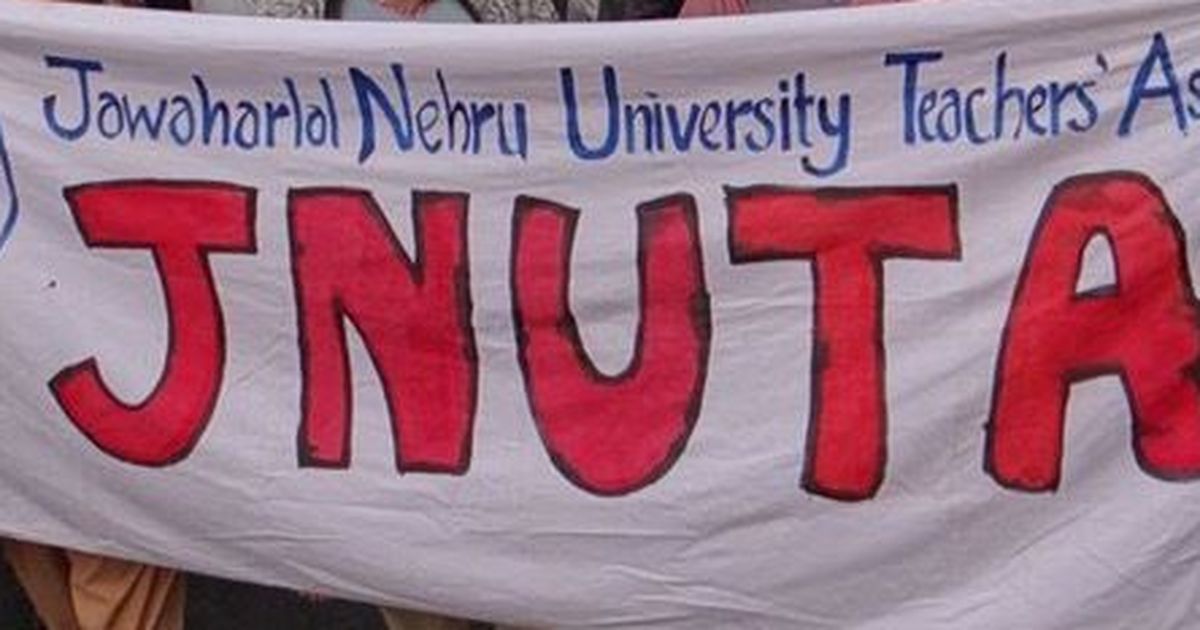The faculty of Jawaharlal Nehru University (JNU) have voiced strong criticism and discontent over the imposition of Central Civil Services (CCS) Conduct Rules, 1964, saying they are “against the spirit of a university.” The rules were on the agenda of the 147th academic council meeting held on October 6, 2018 were said to supposedly guide the “conduct” and “service” for teachers and staff based on the government’s regulations.

The JNU Teachers’ Association (JNUTA), that also issued a statement, said that the administration is “surreptitiously muzzling criticism against the policies of the government.” CCS Conduct Rules have already been imposed in media schools such as Indian Institute of Mass Communication (IIMC).
They have written asking for the withdrawal of the rules’ clauses along with more time for adequate study and discussion on the issue.
JNUTA statement said, “The rules are applied to administrative officers in the government and their extension to universities such as JNU would take away the institution’s social benefit.”
The statement added, “A university produces new knowledge and teaches it. But to do so, it needs independence of thinking and the freedom to dissent and act on that dissent. The CCS rules will remove these freedoms,” JNUTA said in a statement.
Some of the rules are:
From CCS (Conduct) Rules 1964 (amended 2014) pg. 6-8
(1) No Government servant shall be a member of, or be otherwise associated with, any political party or any organisation which takes part in politics nor shall he take part in, subscribe in aid of, or assist in any other manner, any political movement or activity.
(4) No Government servant shall canvass or otherwise interfere with, or use his influence in connection with or take part in an election to any legislature or local authority:
(ii) resort to or in any way abet any form of strike or coercion or physical duress in connection with any matter pertaining to his service or the service of any other Government servant.
(1) No Government servant shall, except with the previous sanction of the Government, own wholly or in part, or conduct or participate in the editing or management of, any newspaper or other periodical publication or electronic media.
No Government servant shall, in any radio broadcast, telecast through any electronic media or in any document published in his own name or anonymously, pseudonymously or in the name of any other person or in any communication to the press or in any public utterance, make any statement of fact or opinion –
(i) Which has the effect of an adverse criticism of any current or recent policy or action of the Central Government or a State Government:
(ii) Which is capable of embarrassing the relations between the Central Government and the Government of any State; or
(iii) Which is capable of embarrassing the relations between the Central Government and the Government of any foreign State;
What would imposition of these rules mean?
The imposition of these rules implies that economics professors can be punished for discussing economic policy; political scientists can be punished for discussing politics; environmental science professors can be punished for discussing environmental policy; scientists can be punished for discussing government science policy etc. All educationists can be punished for expressing their views on educational policy. Through this notification the role of both academics and civil society has been criminalized!
The regulations on publication mean that routine academic work of writing and publishing papers becomes a “violation of service conditions.” In fact, matters that are considered prestigious, like being invited to be on the editorial board of journals- will become a violation of service conditions.
Phrases such as “capable of embarrassing the relations” between Centre and States or between India and other foreign states would mean that not only can one not make any critical comments about inter-state relations or international relations, but even a critical commentary on literary and art traditions could invite punitive action.